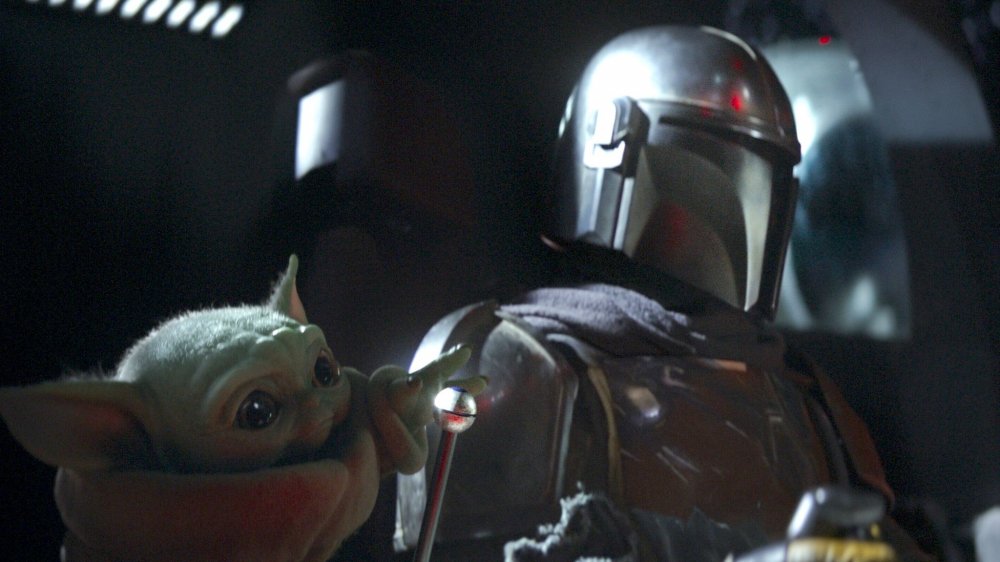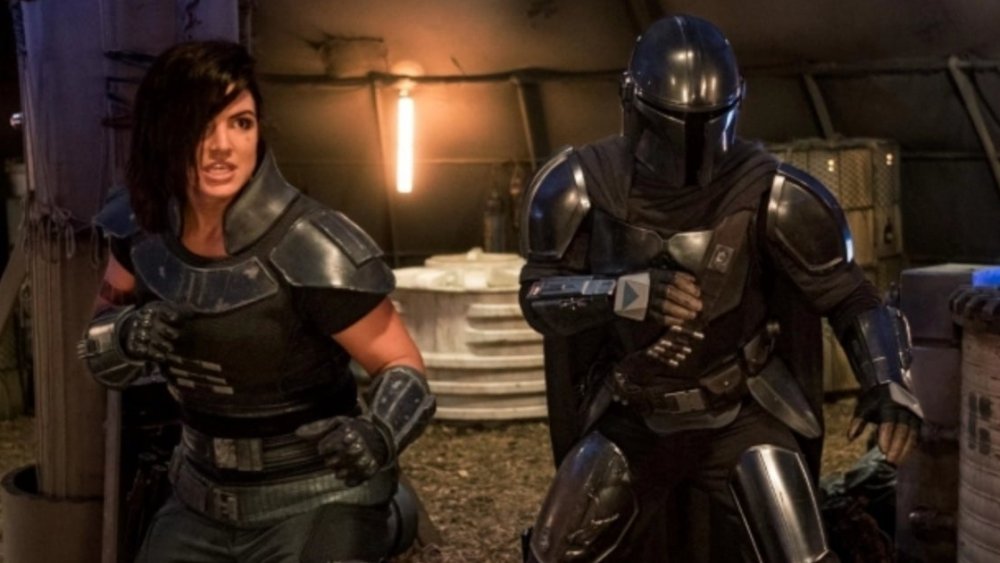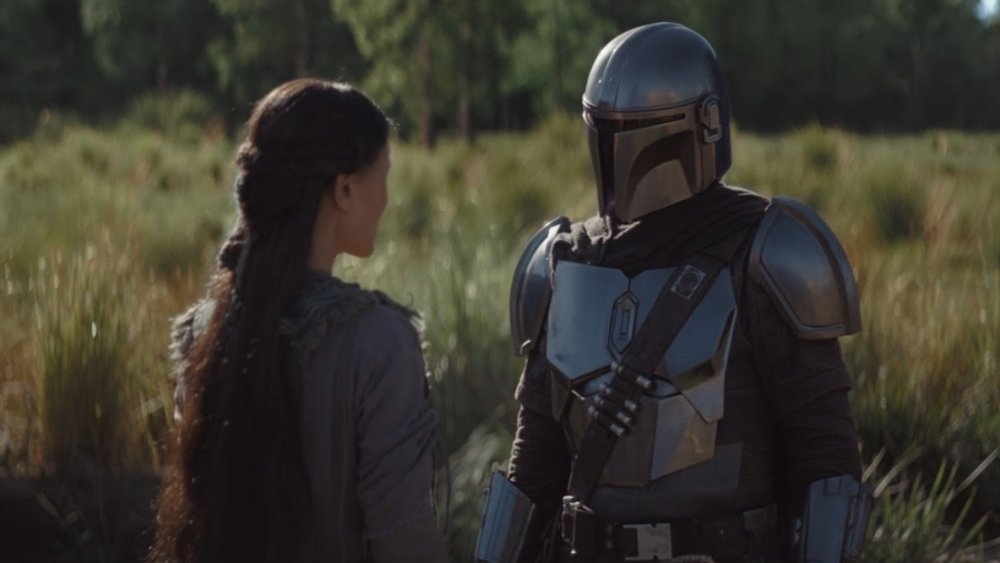The Ending Of The Mandalorian Chapter Four Explained
The Force giveth and taketh away — that's the lesson poor Mando learns in the newest chapter of The Mandalorian. The episode's title "Sanctuary" sets up that classic, bittersweet trope of all great Western films: the cowboy rolls into a one-horse town, fixes problems only people on the frontier could possibly experience, and becomes beloved.
We, of course, know exactly how this is going to end, because the Mandalorian (Pedro Pascal) is literally a man with no name. At the episode's conclusion, he's ready to ascend once more to the stars and continue following his compulsion to roam — but it may not be all sunsets and solitary endings after all, because the Child has been found by one more of the endless horde tracking him, and sanctuary has been spoiled. Siri, play "Wild West Hero" by ELO for all of us as we try to cope in this trying time.
We're left again with the Mandalorian and the Child in the middle of a wistful departure and no idea where the next chapter may lead. We can gather now that this is part of the point of the series' first season, to keep us feeling as lost and confused as our hero must be, searching his star charts for the next island to stave off the inevitable. But as Mando grows more obviously attached to his onetime bounty, and the consequences of his betrayal of his guild begin to stack up, how does this end in anything other than tragedy?
Cara Dune joins The Mandalorian
The Mandalorian's fourth episode introduced us to Cara Dune, former Rebellion soldier-turned outlaw mercenary who is a little rougher around the edges than Mando. It was a bit of a surprise to have her drop into Mando's life, then to see him say goodbye to her by the episode's end, when we know we're going to see her again — but honestly, that only builds all the more intrigue around the character. We're pleased to see she hasn't been immediately relegated to Potential Love Interest, and that she just might grow into the role of Mando's actual butt-kicking BFF, provided there are no last-minute betrayals on her part. Mando may not be allowed a permanent home with a white picket fence, but for crying out loud, let him have friends.
Cara Dune also provides a really great narrative opportunity: an external foil for Mando's feelings. Up until now, we've had to process most of his emotions purely through his body language, and while Pascal is doing a magnificent job communicating what's going on underneath his helmet with almost no dialogue, the conceit does leave interpretive gaps by its very nature. Mando and Cara are immediately presented as simpatico through the time-honored trope of morally grey characters fostering friendship through fistfights. She lives the rough-and-tumble life, too, and understands that Mando does want a simpler existence, though she does not understand why he refuses it when it's offered. We're looking forward to seeing the two meet again, and hopefully not on opposite sides of some conflict.
What does the Mandalorian really want?
"Sanctuary" taught us quite a bit about Mando's motivations. Earlier, we discussed the trope of cowboys and the dusty towns they're tempted to remain in, but jokes aside, the idea of a permanent home is something Mando pretty clearly wants, and actively denies himself. This applies twofold in this episode: he denies even the possibility of connecting with Omera (Julia Jones) on a more personal level, and initially decides to leave Baby Yoda in the care of the village before everything goes wrong.
Why? Because of his debt to the Mandalorians people — and we now can say with relative certainty that the Mandalorian is not, well, a Mandalorian. As in, not from Mandalore and the surrounding colony planets. He is taught in their warrior traditions and observes their faith, and that is clearly all that matters to what we presume are the actual Mandalorians he has previously interacted with, but he was originally of another race or heritage as a Foundling before being rescued by the Mandalorians.
No doubt he feels a huge life debt to those people for giving him his life and the best possibility of surviving on the edge of the galaxy, but there also was a rather pregnant pause before Mando said he was happy the Mandalorians gave him the life they did. He also initially rebuffs Cara's assertion that leaving Baby Yoda behind in the village, even for his own benefit, will break his tiny green heart with "He'll get over it. We all do."
Mando. Buddy. You loaded up that big old transport with half the guns in the parsec and that's still less baggage than whatever's going on in that chrome dome of yours. But that inner conflict makes sense, doesn't it? Mando wants to honor the gifts he's been given, but if he's not of the Mandalorians as a people and is suddenly feeling torn from the responsibility he has acted under for many years, that could create a pretty significant crisis of identity. He works incredibly hard to be what he is, and to live up to the Mandalorian standard. What happens when life tempts him from it? That inner conflict isn't going away, because the Child — Mando's little womp rat — is coming with him, and that connection between them is only going to grow.


